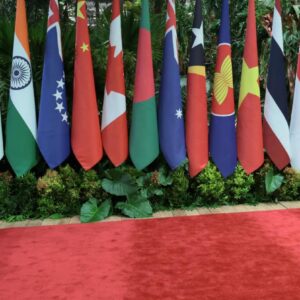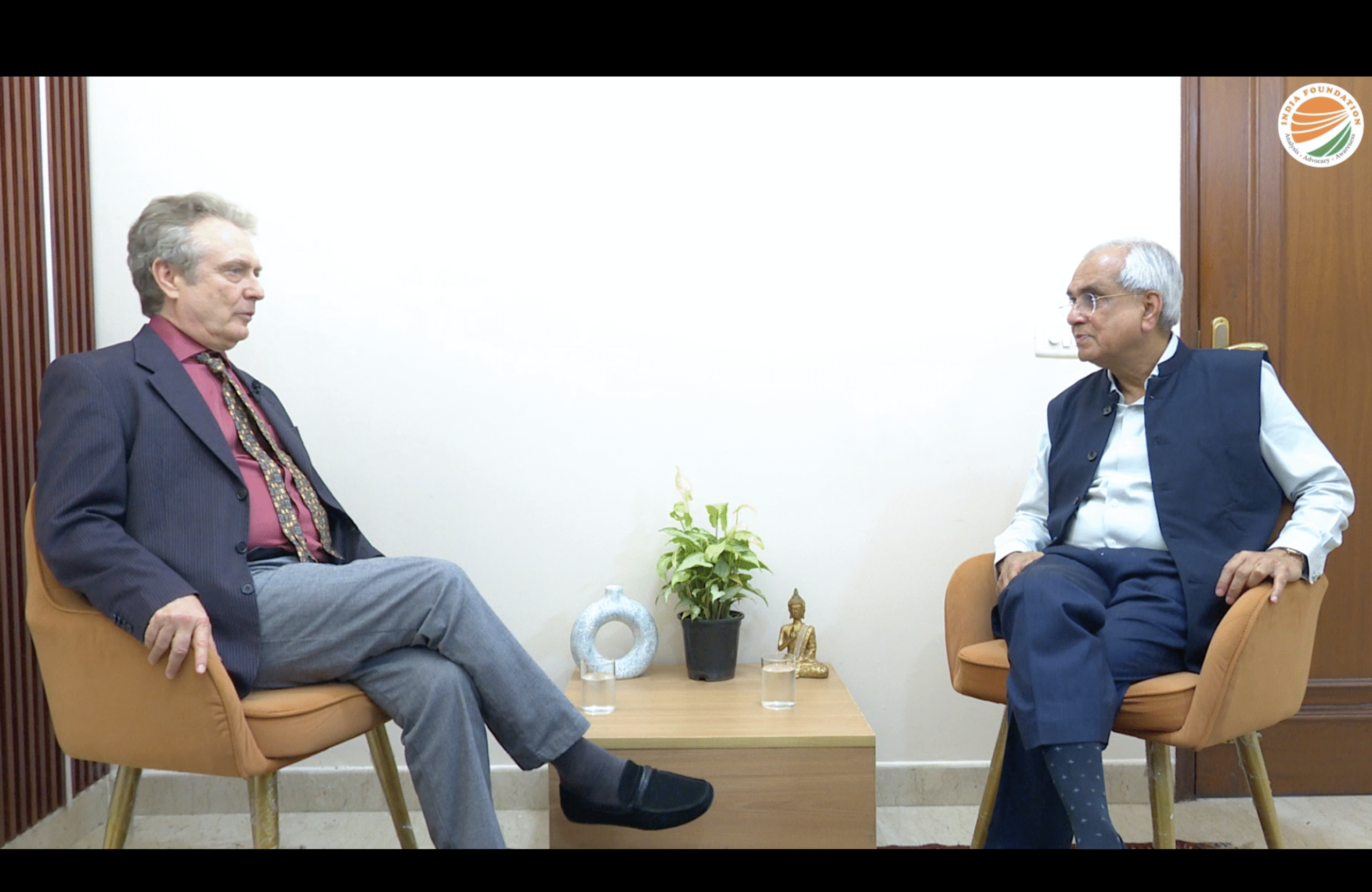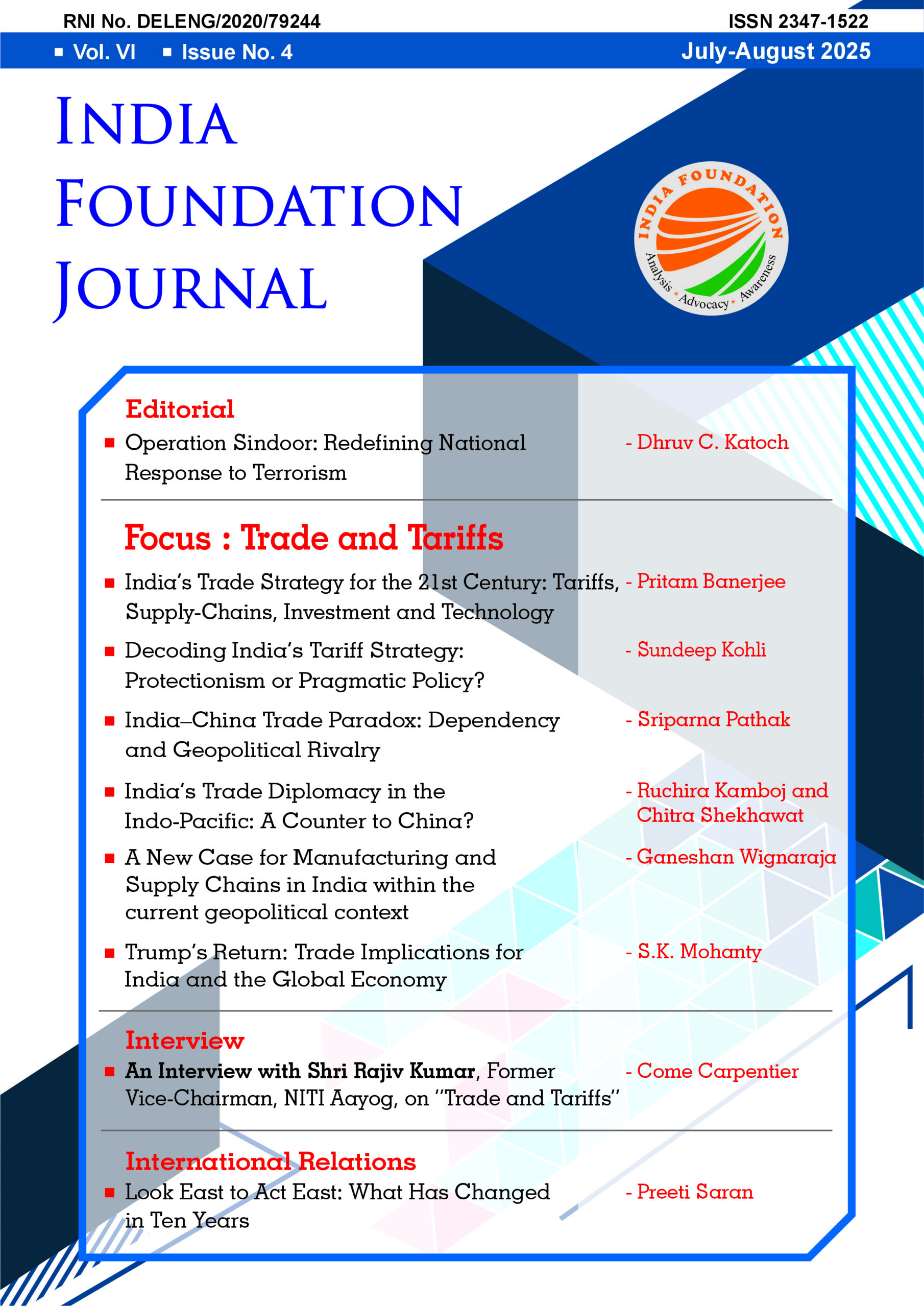Publisher: Pentagon Press
Price: Rs.705/-
Book Review by: Deeksha Goel
Shaida Mohammad Abdali is serving the Government of Afghanistan as its Ambassador to India and is the Non-resident Ambassador to Nepal, Bhutan and Maldives.
In his book, Afghanistan-Pakistan-India, Ambassador Abdali has explored the potential of the trilateral relationship between the three countries, which is also his area of expertise. He has written extensively about the past and present of the political, defence, and economic situation of the three nations. Major events of the last decade have been clearly highlighted ranging from the internal conflicts and the Taliban regime to the impact of USA’s invasion in the region after 9/11. To expand, he has included the role of Pakistan-India relations on the development and stability of the region at large and Afghanistan in particular.
The book further talks about the historic ties that India has shared with Afghanistan and how the same had been developed upon in the recent past. Be it reconstruction, academic scholarships, or military assistance, India has been the largest regional aid provider for Afghanistan. He goes on to talk about the multifaceted relationship in the context of their strategic partnership agreement. He has also underlined the significance of India’s reconstruction efforts in Afghanistan. He has further examined India’s role in education, training of civilian and military personnel, health infrastructure and economic development.
Talking about Afghanistan, Ambassador Abdali has recognised the need for the nation to play its own unique role in bringing about crucial changes in the region. Besides, being a point of contact between central Asia, South Asia, Southeast Asia and the Middle East, Afghanistan is currently the missing link for ensuring a smooth transit of people, trade, energy and goods within the region. He has further enlisted four factors for Afghanistan’s weakness, they are:
- A regional pursuit of geopolitical ambitions
- Destabilising efforts of the non-state armed groups
- A weak Afghan Government and weak state institutions
- Rapid growth of poppy cultivation
Talking about the history of Afghanistan-Pakistan, Ambassador Abdali emphasizes that the current state of relations has been a predictable outcome of the initial unhealthy start between Afghanistan and Pakistan following the birth of the latter in 1947. The primary bone of contention, however, dates back to 1893, when the Durand Line border between the two nations was imposed by the British for reasons of imperial control and the burning question of the cohesiveness of the Pashtun nation was born as its unfortunate result.
The modern, nationalistic thinking of Sardar Daoud Khan is elicited, who, in 1955, “was emboldened enough to confront the radical elements. On August 31, 1955, he allowed women to appear in public without the veil, and women of the royal family were publicly seen without the purdah for the second time in the country’s social history.” Daoud’s governmental reforms were carried out in the spirit of Amir Amanullah Khan’s thinking, who struggled for an enlightened and modern free society where human rights and civil liberties could be ensured for all the people of Afghanistan.
Further, adding on to the cooperation among India, Pakistan and Afghanistan, the author has expressed concern on the prevalent situation. Economically, the region is at a standstill. It is faced with severe economic crisis, the growth rates are at an all-time low, vast resources have been left untapped and major signature projects such as TAPI and others are still in nascent stages. He further noted that SAARC, the region’s most aspiring organisation, has remained dysfunctional. Writing about the cooperation between India and Pakistan in the context of Afghanistan, the author says that “Cooperation does not imply an absence of conflict but takes place in situations in which actors perceive that their policies are actually or potentially in conflict, not where they are at harmony.”
Discussing sinister elements threatening regional security, in particular, that of Afghanistan and India, Mr. Abdali points out that such internationally famous terrorist organizations as the Lashkar-e-Taiba (LeT), the Tahreek-e-Taliban Pakistan (TTP) and the Haqqani network are living peacefully and thriving in Pakistan as they implement their nefarious designs against Afghanistan and the Indian administered Kashmir.
The author is of the view that all these terrorist organizations should be isolated, and then Pakistan should be forced to dismantle them while removing all obstacles it throws in the way of regional trade and cooperation. Besides that, he also suggests that Afghanistan should not be abandoned by the major powers as it was once left in isolation decades ago by the USSR and the United States.
In his concluding chapter, Ambassador Abdali writes of Afghanistan being an unstable country that continues to suffer from insecurity and weak governance. Dilapidated Afghan institutions remain incapable of delivering services to the Afghan people who are tending to lose faith in central government. He has also enlisted the external and internal factors that affect the stability of Afghanistan and have been identified by the World Bank. They are:
External Factors:
- Strategic Location
- Pakistan and the Extremist Groups in Afghanistan
- The Durand Line
Internal Factors:
- Government Structure, Bureaucracy and State Functions
- Lack of skilled Human Resource in Governance
- Low Salary
- Lack of merit based appointments
- Inadequate mechanisms for Performance Management
- Imbalanced Delegation of authority among the Government Departments
- Corruption
- Drug Production
Mr Abdali concludes by saying that unless the three countries address the common problem of terrorism firmly and sincerely, there would be no good future in sight. He reiterates Afghanistan’s assistance in formulating a joint counter-terror strategy with both Pakistan and India. With regard to overall trade at the larger level, Mr Abdali has expressed the need for a more concerted and energetic regional and international effort to enable Afghanistan to take fuller advantage of its geographical position at the crossroads of difference cultures, states and peoples.
(Reviewer is a Senior Research Fellow at India Foundation)
—



